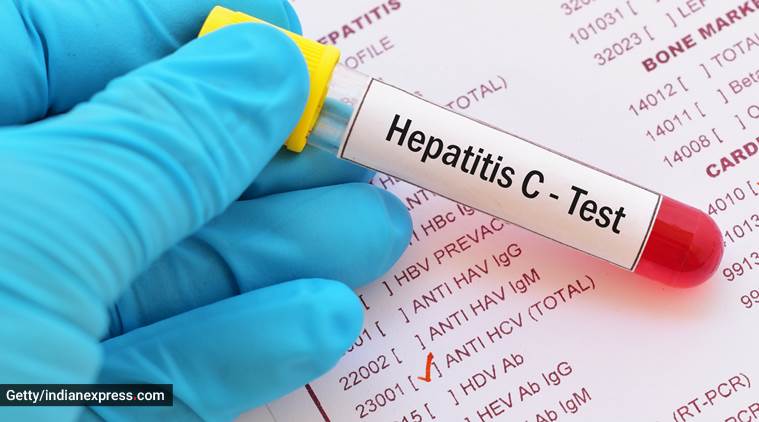
By: Parenting Desk | New Delhi | Published: July 28, 2020 12:51:12 pm

In children, the transmission is mainly vertical. Children are more likely to contract the Hepatitis C virus through being born to a Hepatitis C-infected mother. (Source: Getty/Thinkstock)
By Dr Sufla Saxena
Having a child brings joy to the family but if either or both parents suffer from Hepatitis C, there is a high level of worry about the child’s current and future physical health, emotional well-being, and general behaviour.
We discuss some of the concerns and precautions that need to be taken.
How do children get Hepatitis C?
The incidence of acute HCV in children under age 19 is 0.1 per 100,000. In children, the transmission is mainly vertical. Children are more likely to contract the Hepatitis C virus through being born to a Hepatitis C-infected mother. Before 1991, children sometimes got Hepatitis C from blood transfusions. This almost never happens now because blood is screened. Among family members, transmission is uncommon but inapparent or direct percutaneous or mucosal exposure to blood can occur.
ALSO READ | Protein is important for pregnant and breastfeeding women
Infants born to HCV-positive mothers, about 5-10 per cent will acquire HCV. Of those that are acutely infected, only about 50-60 per cent become chronically infected, and 25-75 per cent of those will spontaneously resolve by 2-3 years of age. School age children and teenagers who acquire the infection have a natural history like that of adults. Most children who were infected at birth have no symptoms and may have normal or elevated transaminases and viral levels. Long-term studies have shown that perinatally acquired HCV patients only have a 5-10 per cent chance of significant fibrosis and < 5 per cent develop cirrhosis.
When should a Hepatitis C test be done for my baby?
Your baby will need a test if you test positive. The testing is done as early as two months of age, but as it is not totally accurate at this age, it will need to be done again at 18 months of age.
Risk factor for getting Hepatitis C in babies
If a mother has Hepatitis C, there is one in 20 chance of passing it to your baby. The risk is higher if you also have co-infections (particularly HIV and Hepatitis B), immunosuppression, and are not being treated.
Can a mother breastfeed if she has Hepatitis C?
Studies have shown that the chance of passing hepatitis C to your baby from breastfeeding is very unlikely. But if you also have concurrent HIV or cracked or bleeding nipples then breastfeeding should be avoided.
ALSO READ | Nutrition tips to raise immunity and protect kids against COVID-19
What happens if my child gets Hepatitis C?
Approximately one in five children with Hepatitis C clear the virus on their own. The others who become carriers stay mostly healthy until they are adults. They need to be monitored by the specialist and may need antiviral drug treatment to prevent severe liver damage or liver cancer.
General recommendations for families with HCV positive members are that all patients should be vaccinated against Hepatitis A and B. They should also avoid hepatotoxic medications and excessive alcohol. Universal precautions with prompt treatment and clean-up of bloody wounds should be advised. There should be no sharing of toothbrushes and razors.
(The writer is Senior Consultant, Paediatric Gastroenterologist and Hepatologist)
? The Indian Express is now on Telegram. Click here to join our channel (@indianexpress) and stay updated with the latest headlines
For all the latest Parenting News, download Indian Express App.
© IE Online Media Services Pvt Ltd